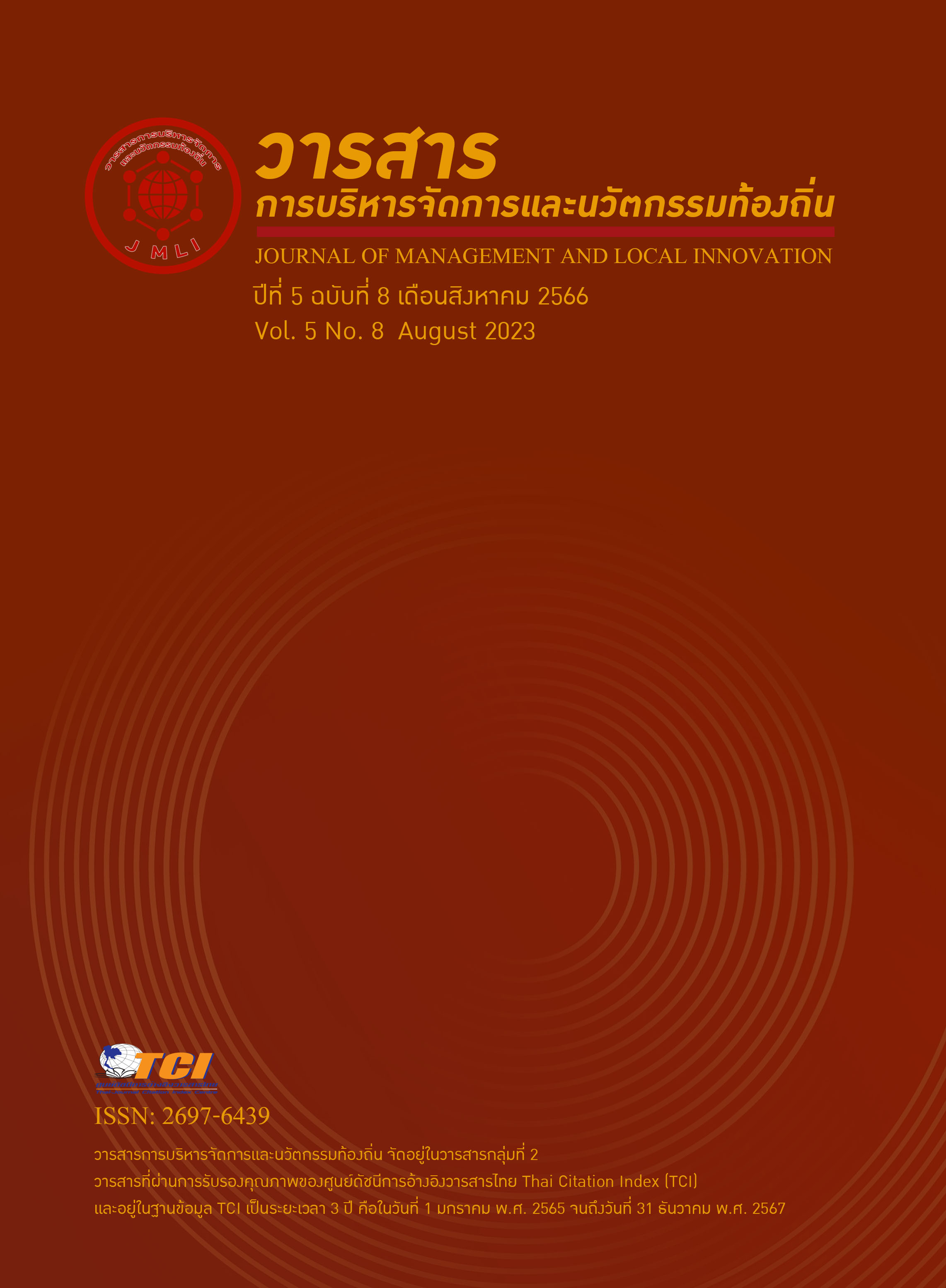ผลการจัดกิจกรรมเกมกระดานที่มีต่อทักษะการทำงานร่วมกันของเด็กปฐมวัย
คำสำคัญ:
กิจกรรมเกมกระดาน, ทักษะการทำงานร่วมกัน, เด็กปฐมวัยบทคัดย่อ
การศึกษาในครั้งนี้มีวัตถุประสงค์เพื่อศึกษาผลการจัดกิจกรรมเกมกระดานที่มีต่อทักษะการทำงานร่วมกันของเด็กปฐมวัย กลุ่มเป้าหมาย คือ เด็กปฐมวัยชายและหญิง อายุระหว่าง 5 - 6 ปี ที่กำลังศึกษาระดับชั้นอนุบาลปีที่ 3 ภาคฤดูร้อน ปีการศึกษา 2566 โรงเรียนวัดไผ่โรงวัว สำนักงานเขตพื้นที่การศึกษาประถมศึกษาสุพรรณบุรี เขต 2 จำนวน 18 คน เครื่องมือที่ใช้ในการศึกษา ประกอบด้วย แผนการจัดกิจกรรมเกมกระดาน จำนวน 8 สัปดาห์ ทั้งหมด 24 แผน และแบบสังเกตพฤติกรรมทักษะการทำงานร่วมกันของเด็กปฐมวัย 3 ด้าน ประกอบด้วย ด้านการเห็นอกเห็นใจผู้อื่น ด้านการเชื่อถือไว้วางใจ และด้านการร่วมมือ วิเคราะห์ข้อมูลเชิงปริมาณด้วยการหาค่าเฉลี่ย ค่าเบี่ยงเบนมาตรฐาน และการวิเคราะห์ข้อมูลเชิงคุณภาพด้วยการวิเคราะห์เนื้อหา ผลการศึกษาพบว่า เด็กปฐมวัยที่ได้รับการจัดกิจกรรมเกมกระดาน มีค่าเฉลี่ยทักษะการทำงานร่วมกันของเด็กปฐมวัยสูงขึ้นกว่าก่อนการจัดกิจกรรมเกมกระดาน ก่อนการจัดกิจกรรมเกมกระดาน มีค่าเฉลี่ยเท่ากับ 7.56 ค่าเบี่ยงเบนมาตรฐานเท่ากับ 1.25 และหลังการจัดกิจกรรมเกมกระดาน มีค่าเฉลี่ยเท่ากับ 15.56 ค่าเบี่ยงเบนมาตรฐานเท่ากับ 1.85 โดยเด็กปฐมวัยมีพฤติกรรมทักษะการทำงานร่วมกันเพิ่มขึ้นทั้ง 3 ด้าน โดยด้านที่มีค่าเฉลี่ยสูงสุดคือ ด้านการร่วมมือ เด็กแสดงความคิดเห็นและยอมรับข้อตกลงของกลุ่ม ในการเล่นหรือการทำงานร่วมกันเป็นกลุ่มกับเพื่อนได้ดีขึ้นด้วยตนเอง รองลงมาคือ ด้านการเชื่อถือไว้วางใจและด้านการเห็นอกเห็นใจผู้อื่น เด็กช่วยเหลือซึ่งกันและกัน ในการเล่นหรือการทำงานให้ประสบความสำเร็จได้ดีขึ้น เด็กบอกอารมณ์ความรู้สึกและตอบสนองต่ออารมณ์ความรู้สึกของเพื่อนได้ดีขึ้นด้วยตนเอง ตามลำดับ


